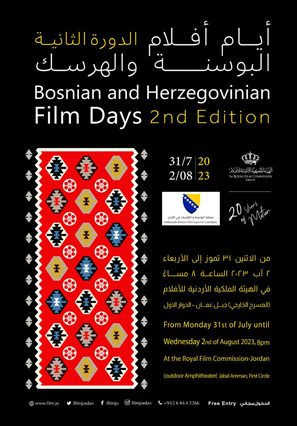You are here
Film festival sheds light on 70 years of Palestinian Nakba
By Muath Freij - Jul 18,2018 - Last updated at Jul 18,2018
AMMAN — Local cinema enthusiasts this week were given an insight into the issue of Palestinian Nakba through the screening of a number of Arab movies at the Royal Film Commission- Jordan (RFC).
"Cinema is a universal language that communicates with nations and people’s minds and revives memory," said Palestinian artistic director and founder of Filmlab: Palestine Hanna Atallah.
Atallah made his remarks during the opening of the "Palestinian Nakba in Arab Cinema" event which kicked off at the RFC premises on Monday.
Movies including "The Door to the Sun", "1000 & 1000 Nights", "Frontiers of Dreams and Fears", "Port of Memory" and "The Time That Remains" were part of the programme which wrapped up on Wednesday.
Nada Doumani, RFC communication and cultural programming manager, said it is the first time that a cinematic event is entirely designed to mark the Palestinian Nakba (or "catastrophe").
“We wanted to put a light on how cinema can tackle important historical events in a universal language,” she told The Jordan Times, adding that the idea also came after RFC launched a competition called “We are Jerusalem" open to all Arab directors a few months ago.
“Unfortunately, the films that we received were not up to the standards, according to the independent jury, in the sense that they did not convey the message in the right way," she recounted, adding "so we decided to watch movies that have been internationally acknowledged and can probably give a different perspective on how to carry powerful messages and to tell a story that is based on actual events in fictions, narrative movies or documentaries”, Doumani continued.
In addition to movie screening, a panel was also held on Tuesday to discuss how cinema does tackle political issues in a universal language, with the participation of Egyptian director Yousry Nasrallah, Lebanese director Hady Zaccak, Jordanian director Darin J. Sallam, in addition to Atallah.
“With this combination, we have quality movies telling a very important story in the history of Palestine and the Arab World but from perspective different from that of Arab directors,” the RFC official stated.
For Atallah, the project of Nakba in Arabic cinema is “always important and sensitive”. “Because cinema is the individual and collective memory of each nation especially in the political stages that we go through lately and as we mark 70 years of Nakba, it is important to highlight Nakba through the perspectives of Arab directors and for the young generation to learn how these Arab directors tackled the issue in a cinematic way,” he told The Jordan Times.
He, however, pointed to the main challenge Palestinian filmmakers face in financing their movies.
“In Palestine, we have movies but we do not have cinema because Palestine lacks proper infrastructure in making Palestinian movies. Yet, at the same time, you can find Palestinian movies that are appreciated internationally. Behind this success, you can feel a journey of suffering to reach to this level,” the filmmaker concluded.
Related Articles
AMMAN — The second edition of the “Bosnian and Herzegovinian Film Days” festival kicked off in Amman on July 31, enthralling audiences with
AMMAN — This year’s return of the Amman International Film Festival (AIFF) will continue to highlight debut achievements in film from around
AMMAN — The seventh edition of Arab Film Festival Amman kicked off on Sunday at the Royal Film Commission-Jordan (RFC), with the scree













